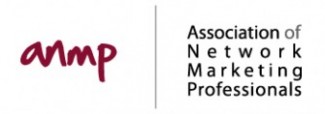Recent Regulatory Misinterpretations Can Be Harmful to Distributors
By Len Clements © 1999
The serious challenge that has arisen in recent years involves the interpretation of the 70% Rule. Previously, the “or consumed” provision in the above definition has received little or no resistance. In fact, this has been generally accepted without incident or harm for the entire 20 year period since the Amway decision. However, for some unknown reason (although many theories abound) several actions have been taken recently in which the “or consumed” aspect has been thrown out. The judge or regulatory body has demanded that 70% of all previous wholesale purchases be retailed to non-distributors only. Furthermore, they have ruled that no commission, bonuses or overrides be paid on product personally consumed by the distributor!
Perhaps the most publicized case involves the Ninth Circuit Court of Appeals decision against Omnitrition. A class action suit was filed (by two disgruntled ex-distributors) and the suit was originally dismissed in Omnitrition’s favor by summery judgment (it didn’t even go to trial). When the class appealed this decision, the Ninth Circuit Court not only ruled in favor of the class action (demanding only that the lower court must hear the case), the court uncharacteristically offered a detailed opinion as to why. The court proclaimed that personal purchases were not applicable in satisfying the 70% Rule and therefore there was a legitimate case to be made that, in fact, Omnitrition was operating an illegal pyramid (again, this decision only required the lower court to go forward with the case and did not actually declare Omnitrition a pyramid scheme). The outcome of the lower court trial is still pending.
Having spoken with numerous individuals within the offices of Attorney’s General (yes, that is the proper pronunciation) throughout the country over the years, I had ample opportunity to quiz them as to their position on this “or consumed” issue. Only onestate, Michigan, offered the clear and specific opinion that “personal consumption does not satisfy the 70% rule in this state.” Ironically, this is the home state of Amway itself which has evolved into the epitome of transfer buying and personal consumption within this industry. (And, again, without incident or harm to anyone). In fact, Amway recently went counter to the regulatory trend and reducedtheir ten customer requirement to five customers! And, in spite of this verbal declaration given to me over the phone, I can find no specific action taken by the Michigan AG’s office in which they’ve challenged the personal consumption aspect.
Most recently, California and North Carolina have boldly and clearly declared that personal consumption does not (no longer?) satisfy the 70% Rule and that no commissions or bonuses can be paid to distributors on personally consumed product. One recent case involves Destiny Telecom and the state of North Carolina. This case is especially disturbing in that the state not only demanded that Destiny verify to the state, on a monthly basis, that 70% of all wholesale orders by distributors are being retailed to non-distributors, but further demanded the following: “Should a North Carolina retail customer subsequently establish such a connection by becoming an ‘Independent Representative’… any prior salesmade to that customer shall be considered an internal sale from the time of sale and shall not be considered a retail sale for any purpose at any time” (underline emphasis mine). Understand, this startling and bizarre provision is declaring that, for example, if you are strictly a retail customer for an entire year, then you decide to simply sign a distributor application, even if it’s just so you can get the products at wholesale and you have no intentions of working the business, Destiny will not be able to count, nor will North Carolina accept, the entire previous year’s worth of sales as retail sales!There is no legal, ethical, or logical explanation for such a demand to be made on a network marketing company.
But there’s more.
Immediately following the above statement (found on pages two and three of the Consent Agreement between Destiny and NC), the agreement goes on to demand that “Destiny shall immediately revise its records to ensure that the benefits provided to all relevant participants are adjusted accordingly.” In other words, all the commissions and bonuses that were previously paid on this year’s worth of retail volume (based on the above example) must be deducted from those distributors next check! Amazing.
California’s AG’s office, within their Final Judgment against Destiny, has ruled that any type of sales aid or live training is not commissionable. Curiously, Destiny never paid commissions on either of these items — but several major competing companies do! While the judgment was somewhat ambiguous as to the personal consumption issue, nothing was left to the imagination in the consent decree issued by California against AuQuest. Herein they ruled that commissions may only be paid on sales to the “ultimate consumer.” However, they went on to define “ultimate consumer” as “Persons who are not a part of the AuQuest Marketing Plan.”
At first glance the state of Arizona, in their consent decree with TeleSales, Inc. (another prepaid phone card deal) seems to have used a little common sense in the matter. They ordered that commissions must be based on “retail sales,” but defined this as being sales to persons who “are not part of (the) marketing program” but also sales to “persons who, although desirous of becoming or who are part of (the) marketing plan or distribution system, are buying for their own personal or family use.” There is a subtle nuance in this definition that may have been missed. Arizonadid not say that a distributor’s own personal consumption is commissionable to his or her upline, but rather a “sale to” anotherdistributor for their personal consumption! This, of course, begs the question, Why would a distributor buy at retail from another distributor when they can buy at wholesale direct from the company via their own distributorship? (Arizona also fined several of what TSI reported to them to be “major” distributors $25,000 each, which begs the question, What is a “major” distributor? Exactly how big does someone’s downline have to be before they stop becoming the victim and become the perpetrator? Five hundred? Five thousand? What!?).
What these rulings requiring commissions be paid only on retail sales to non-distributors does, in effect, is place the selling distributor in a very precarious position from an ethical standpoint. They would now be motivated to hide the fact from their customer that they can simply sign up as a distributor, likely at no charge, and get the product significantly cheaper. When the retail customer inevitably discovers this option, they surely will question the selling distributor as to why this option was never presented to them. They’ll probably be at least a little POed — and rightfully so. To place a distributor in this position is the real crime here!
These regulatory people’s job is to prevent us all from getting hurt. Isn’t creating a strong motivation to keep retail customers out of the distributor scrolls, thus causing them to pay 30-40% more than they need to be paying for their products, harming that customer?
What’s more, it can cause harm to the distributor as well. Think about it. Who, in the 53 year history of network marketing, has ever been harmed by purchasing only the amount of product that they can comfortably consume themselves? No one! Who has been harmed by buying more than they can consume, or even sell? Thousands! What the 70% rule effectively does, when personal consumption is not factored in, is require by law that the distributor purchase over three times as much product as they can personally consume! If Mary only wants to purchase $100 worth of products for herself and her family, the 70% rule (sans personal consumption) requires that she purchase $333 worth of product — then be forced to sell the extra $230 worth within 30 days, or be forced to lie about it just so she can get the products she wants the next month (typically, companies are not suppose to let you order more products unless you’ve met the 70% rule).
Not only that, but if Mary does only order $100 worth, this screwy interpretation of the 70% rule would require that she sell $70 of it, leaving her with only $30 for herself. So, she must then order another $70 in product to get the $100 worth that she truly desires. But wait! Now Mary has purchased $170 in product total. She needs to retail $119 of it to satisfy the personal consumption-less 70% rule. So she retails another $49 to satisfy the rule — leaving her $21 short of the $100 worth that she really wants for herself. So, she orders another $21 from the company. But, alas, she’s now ordered a total of $191, and $14.70 more product must be retailed.
Isn’t this just a little ridiculous?
In an effort to make our industry less financially risky, thus lessvulnerable to media and regulatory attack, most MLM companies have enacted a free sign up system where even the “at cost” distributor kit is an optional purchase. But, by doing so we’ve now totally blurred the lines between “customer” and “distributor.” It makes no sense for someone to be paying retail prices for something they can get at wholesale by simply calling an 800-number and “signing up.” So, now retail customers all appear to be “distributors” in the company’s database. Our efforts to make ourselves less vulnerable has made us more vulnerable! What’s more, the absurd way in which some regulators have defined the law in this situation actually puts us and our customers back into a situation of spending significantly more money than we were originally requiring. All in an effort to protect us!
The true spirit of the 70% rule was to simply eliminate front loading and stock piling. In years past it was routine to find many people “buying into” a certain position in the compensation plan with an up front several thousand dollar purchase. This is where the term “garage qualified” came from. And to keep qualified for that position, they’d order hundreds or thousands more each month. These purchases were not because they wanted the product or had the retail client base to sell it to, but rather it was simply a token act to keep qualified in the plan. The 70% rule was designed to eliminate this practice. Well, by counting personal consumption towards the 70% rule it still effectively accomplishes this! And, once again, by not counting personal consumption the distributor/consumer is force by law to actually purchase more products than they wish to!
Arguably, companies like Destiny, AuQuest and TSI were worthy targets due to the lack of any significant amount of retailing and the great emphasis placed by their distributors on recruiting and “buying into” a higher pay level in the plan. Other recent targets, such as Fortuna Alliance, Gold Unlimited, and Boston Finney, also demonstrate that regulators are picking their spots. Very likely noMLM company is truly retailing 70% of their sales volume to non-distributors. Yet the Amways, Shaklees, and Herbalifes continue to do business, unchallenged, in even the most MLM-unfriendly states. As it should be.
On an even more positive note, three states, Texas, Oklahoma, and Louisiana, have recently passed model legislation that specifically declares personal consumption as a valid sale and applicable to the 70% rule. Several other states will be considering similar legislation in 1999 as well.
The greatest fear we should have is that, someday, there is federal regulation of the network marketing industry — and theydemonstrate the same utter lack of understanding of how this business works and what’s best for it’s participants. On a case-by-case, state-by-state basis, we can survive and even thrive. But if Big Brother ever decides to cop the same attitude as a few state AG’s, well, better thank you lucky stars for the Amways, Shaklees and Herbalifes.
Personally, I’m hoping for federal regulation. And I hope that it will be based on the precedent set in the FTC case against Amway back in 1979 and require all companies provide full disclosure and allow for personal consumption to apply towards the 70% rule.
Let us hope.










